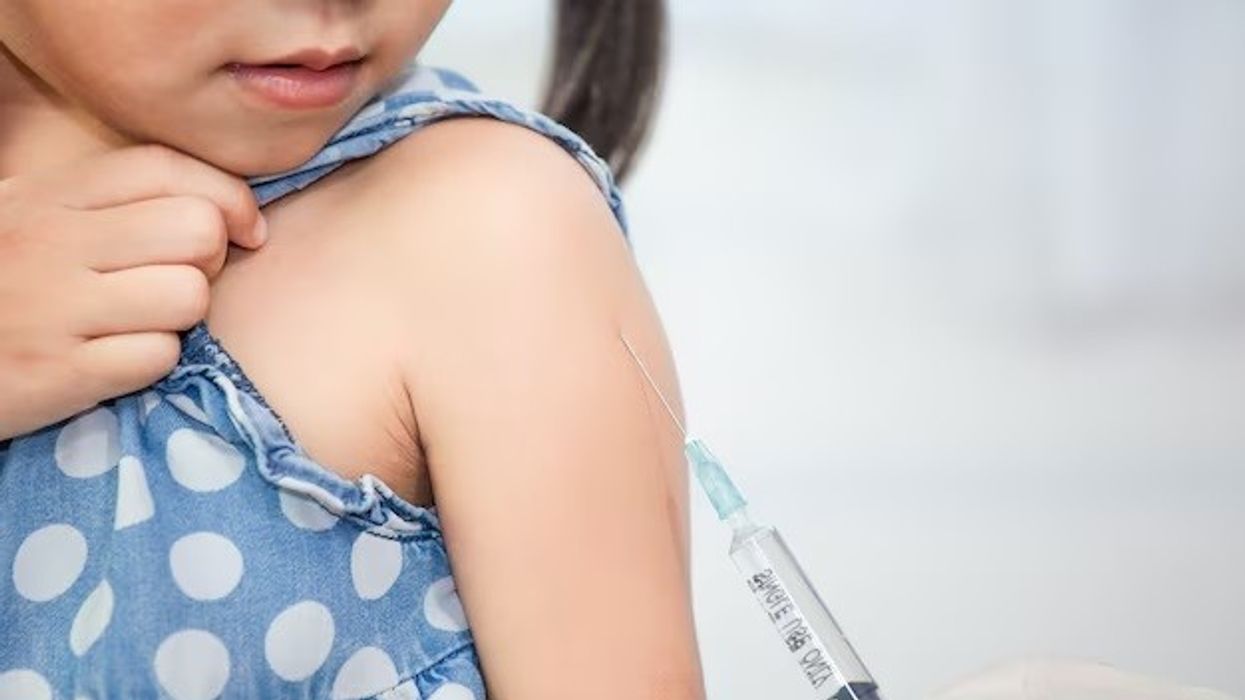Pharmacists can play an essential role in increasing MMR vaccine uptake across communities to prevent large measles outbreaks, say healthcare leaders.
The drop in vaccination rates is believed to be driving a surge in measles cases in England, mainly in the West Midlands.
As of 18 January, 216 confirmed cases and 103 probable cases have been reported in the region since 1 October 2023, the UK Health Security Agency (UKHSA) revealed.
The majority of cases (around 80 per cent) were from Birmingham, with children aged under 10 years being infected the most.
UKHSA Chief Executive, Professor Dame Jenny Harries has warned that the outbreak could spread further to other towns and cities if urgent action is not taken to increase Measles, Mumps and Rubella (MMR) vaccination uptake in areas at greatest risk.
She is calling on all local areas to make a long-term concerted effort to boost MMR vaccine uptake across communities to prevent large measles outbreaks.
Getting the MMR vaccine will not only protect children from measles but also against mumps and rubella.
Hence, U.K. health officials are encouraging parents whose infants missed out, or anyone of any age who has not yet had a vaccine, to come forward and book appointments.
Pharmacies can help in curbing measles outbreaks
As part of the NHS Routine Childhood Immunisation Programme, the MMR vaccine is offered to all children in two doses – the first dose offered at one year and the second dose at 3 years and 4 months.
Meanwhile, several healthcare leaders have suggested that allowing community pharmacies to deliver the MMR vaccine will help boost intake rates and curb the spread of the disease.
Steve Brine, chair of the House of Commons health and social care committee, is in favour of using pharmacy for MMR vaccinations and suggested the same during a debate on measles on 22 January 2024.
While health minister Maria Caulfield agreed with him, she said that the real barrier is “people’s reluctance to get vaccinated” for a variety of reasons, including vaccine fatigue or missing their routine appointments.
The World Health Organization (WHO) recommends at least 95 per cent of children should have two doses of the MMR shot by the time they turn five to maintain population protection.
But vaccine uptake in England is below 90 per cent for the first dose and just 84.5% for the second dose at age five years, Caulfield informed.
Expanding vaccination capacity to pharmacies is crucial
Speaking to Pharmacy Business, Helga Mangion, policy manager at the National Pharmacy Association (NPA), emphasised the importance of expanding vaccination capacity to pharmacies because “it creates better access for people and more resilience for the NHS.”
Elaborating on the role pharmacists can play in combating measles, she said: “Pharmacies are a natural setting to offer an expanded vaccine programme both for MMR and other common vaccinations.
“They enjoy high levels of trust, have huge amounts of expertise, are close to the communities they serve and are ideally placed to ease waiting times for GP surgeries.”
Pharmacies can help overcome vaccine hesitancy, which they have shown during the Covid pandemic, she said.
Why pharmacists cannot offer MMR vaccine? “The only reason pharmacies cannot offer vaccinations such as MMR are historical,” Mangion told Pharmacy Business.
“There’s no reason why they can’t expand their remit to MMR and a wide range of other vaccinations for adults and children.”
She went on to say that pharmacies provide tens of millions of vaccines on the NHS, and pharmacy vaccinations have been a “huge success” story both for the flu and Covid vaccination programmes.
Many pharmacies also have a thriving service offering travel jabs, Mangion added.
RPS President, Professor Claire Anderson, is confident that pharmacists can help patients and parents overcome vaccine hesitancy, and help boost MMR vaccine uptake, which is essential to prevent large outbreaks of measles.
She told Pharmacy Business: “Pharmacists are at the heart of the communities and serve and act as trusted, accessible experts for the provision of healthcare for patients.
“Pharmacists already provide millions of vaccinations safely and efficiently for patients on behalf of the NHS each year, supporting the wider healthcare agenda.
“We have seen the success of vaccination programmes through pharmacies for both flu and covid, and how this supports local communities in building immunity.”
Further, Anderson stated that pharmacists are well placed to further expand the vaccination programmes they offer on behalf of the NHS, and with adequate support, “MMR vaccines could be part of their remit.”
She underscored that improving uptake and widening access for patients to vaccination programmes is essential to help control and eradicate communicable diseases.













